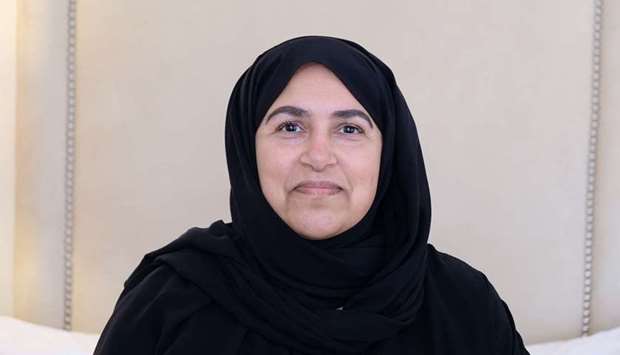World Innovation Summit for Health (WISH), Qatar Foundation’s global health initiative, took part in the Saint Petersburg International Economic Forum (SPIEF) 2021 as part of Qatar’s participation as the “guest country” of the forum and highlighted the need for governments must spearhead investment in healthcare innovations.
WISH hosted a panel discussion on innovation in healthcare that featured representatives from Skolkovo Foundation, Russia’s main innovation hub and from Sper, Russia’s largest bank. The session also highlighted Sensor Tech, a start-up whose innovation for the blind – Robin – was selected as an innovation competition winner at WISH 2020.
“Investments in healthcare that have been spurred on by the Covid-19 pandemic need to continue. Often it is private organisations rather than governments that spearhead investments in innovative solutions. This needs to change, and governments need to own this space more,” said, Sultana Afdhal, CEO, WISH at the forum.
Afdhal stressed that “the right investment at the right time can save millions of lives and also help economies to thrive.”
Afdhal also spoke on a number of other panels discussing strategies to promote innovation in medicines; the role of women in a healthy society; and how to promote science and research as career options for school-age students, at which she highlighted the vital need to include children in the decision-making process.
Citing a research report published by WISH titled Investing in Health; The Economic Case, she said that GDP alone fails to capture the full economic value of improved health, and, when asked, individuals place a high monetary value on the additional years of life that health investments can deliver. This is a value that is unrelated to productivity and therefore not captured in GDP measures; it rarely gets recognised but is a powerful argument for investing in healthcare.
While promoting the need for governments to increase financial support for healthcare-related innovation, Afdhal also emphasised the significance of public health literacy programmes that can lead to the creation of cost-effective, localised, need-based solutions. This requires more action than merely putting money into the healthcare industry, and increasingly the huge cost of healthcare services requires standalone solutions to bring down the financial resources needed to access them. Ultimately, this will increase accessibility for all communities worldwide.
Afdhal added, “I am a huge proponent of health literacy; arming populations with cutting edge solutions and the knowledge to manage their own health is key to achieving the United Nations Sustainable Development Goal of achieving universal health coverage for all.”
“Investments in healthcare that have been spurred on by the Covid-19 pandemic need to continue. Often it is private organisations rather than governments that spearhead investments in innovative solutions. This needs to change, and governments need to own this space more,” said, Sultana Afdhal, CEO, WISH at the forum.
Afdhal stressed that “the right investment at the right time can save millions of lives and also help economies to thrive.”
Afdhal also spoke on a number of other panels discussing strategies to promote innovation in medicines; the role of women in a healthy society; and how to promote science and research as career options for school-age students, at which she highlighted the vital need to include children in the decision-making process.
Citing a research report published by WISH titled Investing in Health; The Economic Case, she said that GDP alone fails to capture the full economic value of improved health, and, when asked, individuals place a high monetary value on the additional years of life that health investments can deliver. This is a value that is unrelated to productivity and therefore not captured in GDP measures; it rarely gets recognised but is a powerful argument for investing in healthcare.
While promoting the need for governments to increase financial support for healthcare-related innovation, Afdhal also emphasised the significance of public health literacy programmes that can lead to the creation of cost-effective, localised, need-based solutions. This requires more action than merely putting money into the healthcare industry, and increasingly the huge cost of healthcare services requires standalone solutions to bring down the financial resources needed to access them. Ultimately, this will increase accessibility for all communities worldwide.
Afdhal added, “I am a huge proponent of health literacy; arming populations with cutting edge solutions and the knowledge to manage their own health is key to achieving the United Nations Sustainable Development Goal of achieving universal health coverage for all.”

